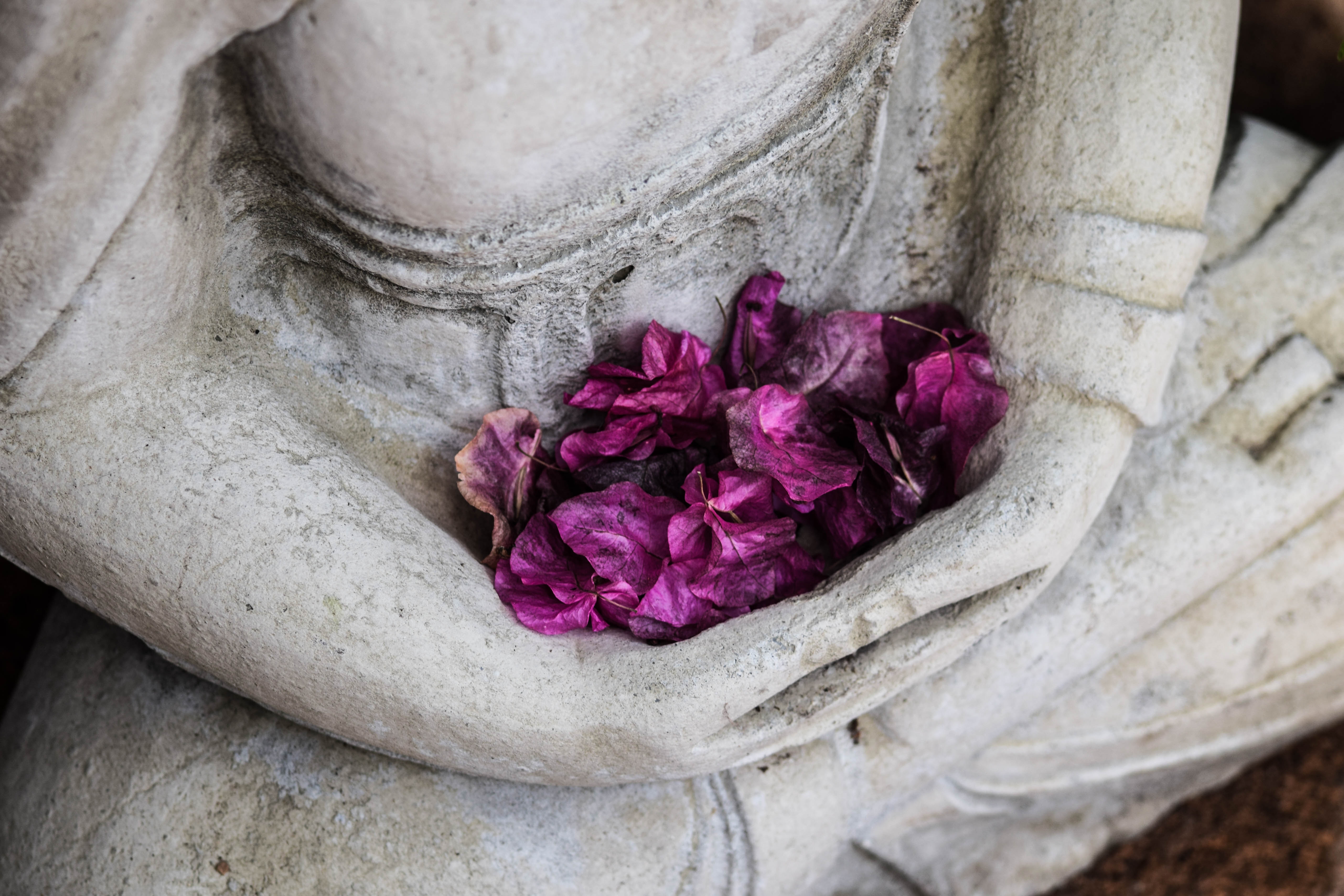Welcome to our special section, Thrive on Campus, devoted to covering the urgent issue of mental health among college and university students from all angles. If you are a college student, we invite you to apply to be an Editor-at-Large, or to simply contribute (please tag your pieces ThriveOnCampus). We welcome faculty, clinicians, and graduates to contribute as well. Read more here.
In 2017, a survey by Unihealth found that 82 percent of students experience stress and anxiety. There is a myriad of reasons for this, including worries about loneliness, academic performance, and finances.
What are the options for students who feel this way?
One is therapy. However, this is costly if privately sourced, and is often subject to long waiting lists and limited sessions when accessed through universities or the NHS.
A second, and increasingly explored option, is mindfulness. Unlike therapy, mindfulness can be practised alone, and easily accessed for free.
Mindfulness involves increasing awareness: of oneself, of one’s surroundings, and of one’s actions. By doing this, mindfulness aims to ground people in the present. This consequently alleviates stress and worry which are typically attached to the past and future.
Mindfulness can be accessed in many ways: online, in books, and even via courses run by universities.
But what does practising mindfulness mean?
When I began trying to practise mindfulness, I tried to do everything without distractions. I thought that this would help me to be aware of the present moment.
I would walk to university without listening to music or podcasts; I stopped watching the news while I cooked supper; if I had a free moment I tried to sit with my thoughts and listen to birds outside.
Unfortunately, I did not feel that it was having noticeable benefits on my mood. Contrarily, mindfulness seemed to highlight the amount of potential silence in my day. This made me feel lonelier and more disconnected from the hustle and bustle of the city in which I live. I felt more stressed — did I not have enough friends? Was I not being productive with my time? Was I not working as much as I should?
I tried to push through this doubt in the hope that soon things would “click,” and mindfulness would eventually make me a calmer and more content person. After four earnest months however, I gave up.
For the past few weeks, I have been listening to music on my way to university and podcasts on my way back. I watch the news while I prepare my supper. If I have a free moment, I do a sudoku, read, or watch videos on YouTube.
The other day however, I realised that I still practise mindfulness. Around the same time that I revised these habits, I began a stretching routine every morning. When I brush my teeth, I do not look at my phone anymore. If I am standing in a queue or sitting on the train I do not immediately reach for my phone, but instead look around me, take some deep breaths, and engage with my surroundings.
I am still practising mindfulness, but in a way that works for me. And I feel better for it.
In my initial attempt to be more mindful, I failed to realise that it could be done in degrees. I failed to realise that it could fit around my current lifestyle without replacing it.
Ultimately, mindfulness is having a positive impact on my life.
While my worries have by no means dissipated, I feel better equipped to deal with them.
The crucial moment was realising that I had fit to mindfulness around my lifestyle, rather than the other way around.
Subscribe here for all the latest news on how you can keep Thriving.
More on Mental Health on Campus:
What Campus Mental Health Centers Are Doing to Keep Up With Student Need
If You’re a Student Who’s Struggling With Mental Health, These 7 Tips Will Help
The Hidden Stress of RAs in the Student Mental Health Crisis


